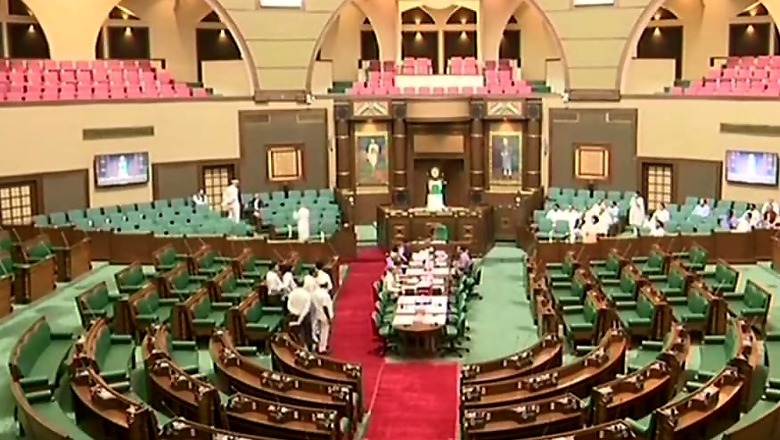
views
Bhopal: The budget session of the Madhya Pradesh Assembly, which began on Monday, was adjourned till March 26 after the Kamal Nath-led government cited concerns over coronavirus, while the BJP demanded holding of a floor test as directed by Governor Lalji Tandon.
In a reminder of the developments in Karnataka last year, former Madhya Pradesh chief minister and senior BJP leader Shivraj Singh Chouhan moved the Supreme Court seeking a direction to the state government to undertake floor test in view of the political crisis in the state. The matter would be heard on Tuesday.
If there were no political crisis in the state, the budget session of the Madhya Pradesh assembly would have started on Monday, following the Governor's address and the assembly would have responded with a vote of thanks and presented its annual budget.
But with 22 rebel Congress MLAs having reportedly expressed their loyalty towards Jyotiraditya Scindia, who has switched over to the BJP, and tendering their resignation from the assembly, the most immediate task at hand is to conduct a floor test to get an elected government with majority back on the driver's seat.
Of the 22 rebel MLAs who have tendered their resignation, Speaker Prajapati has accepted resignations of six MLAs, which has effectively brought down the strength of the Madhya Pradesh assembly to 222.
The new majority mark right now stands at 112. While the BJP has 107 MLAs, it needs at least five more MLAs to vote on its side in a floor test, to be able to stake claim to form a stable government in Madhya Pradesh. Meanwhile, the remaining 16 rebel MLAs have again written to the Speaker offering their resignations.
Chief Minister Kamal Nath wrote to the Governor on Monday challenging his authority in the matter. Responding to the Governor's midnight order asking him to conduct a floor test, reminded him about a 2016 Supreme Court order on a similar crisis in Arunachal Pradesh where the apex court had ruled that “the Governor's connectivity to the House in the matter of sending messages, must be deemed to be limited to the extent considered appropriate by the Council of Ministers... messages addressed by the Governor to the House must be consonance with the aid and advice tendered to him.”
Meanwhile, when asked about who between the Governor and the Speaker will take a final call on floor test in the House, constitutional expert and former secretary general of Lok Sabha, Subhash Kashyap said, "Nobody in the Constitution has an absolute authority on the matter. The Governor is within his rights to send a message to the assembly under Article 175 (2) of the Constitution, to conduct a floor test. Now it is the assembly's decision on what it wants to do. Speaker of the House is only the representative of the House. It is the House which has the ultimate say.”
He further said that the decision on whether to conduct a floor test or not was the "responsibility of the House" and that the Speaker has no role in it.
"See, after the Governor's message or his vote of thanks, the assembly has to respond with a vote. In this case, the assembly is bound to respond to his message with all the members voting on whether they approve or disapprove of his idea. That voting in itself will give one a fair idea of which way the House is tilting," Kashyap said on being asked will the House have to vote on whether to have a floor test.
Responding on a view that a senior BJP leader in Madhya Pradesh expressed that the rebel MLAs don't have to be present in the house during the trust vote, Kashyap said, "There are no two ways about it. The Constitution clearly states that quorum has to be established first and after that all the members present and voting only will be allowed to decide the trust vote.”



















Comments
0 comment